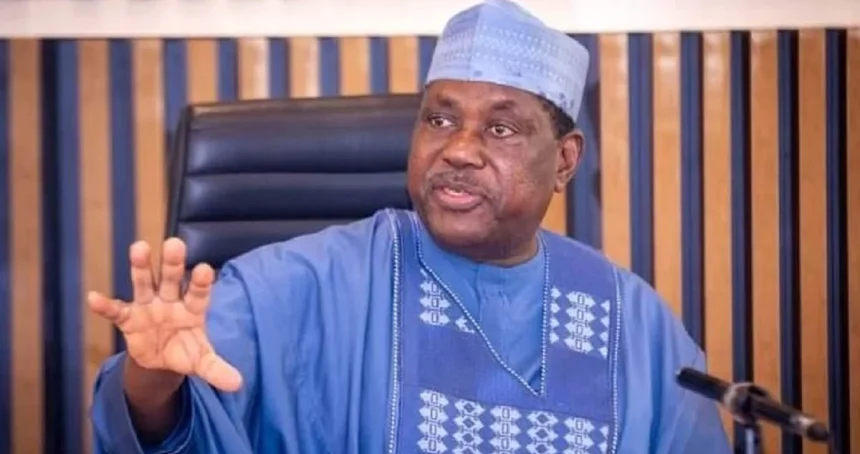Secretary to the Government of the Federation (SGF), Senator George Akume, revealed yesterday that President Bola Tinubu has recognized climate change as a significant obstacle to his efforts to lift millions of Nigerians out of extreme poverty.
This acknowledgment was demonstrated through President Tinubu’s participation in the COP 28 summit in Dubai shortly after assuming office.
Senator Akume emphasized that President Tinubu is among the global leaders committed to reducing extreme poverty, promising a ‘Renewed Hope Agenda’ aimed at improving the lives of millions of Nigerians in the coming years.

The SGF made these remarks at a forum addressing the impact of climate change on farmer-herder conflicts in Nigeria. The event, organized by the office of the Deputy Chairman, House Committee on Environment, Hon. Terseer Ugbor, took place at the National Assembly complex in Abuja.
READ ALSO: Federal Government of Nigeria Signs MoU On Climate Change with UN Agencies
Represented by his Senior Special Assistant, Technical, Professor Bolaji Babatunde, Akume highlighted the president’s recent establishment of a 25-person Committee on Climate Action and Green Economic Solutions. This committee is tasked with coordinating and overseeing all policies and programs related to climate action and green economic development. Additionally, a special envoy on Climate Change Action has been appointed by the president.
“The president’s actions indicate that Nigeria is prepared to take bold measures to fulfill the commitments made under the Paris Agreement, aiming to reduce emissions by 20% and by 45% by the year 2030. Earlier this year, Nigeria launched the Nationally Determined Contributions Implementation Framework (NDC-IF),” Akume stated.
He further elaborated that the NDC implementation framework is not merely a set of ambitious goals but a reflection of Nigeria’s collective vision, shared values, and unwavering commitment to the Paris Agreement. The framework also underscores efforts to secure a sustainable future for generations to come.
READ ALSO: Climate Experts Decry Political Interference in Ecological Funds Allocation
“The framework is a national tool designed to ensure coordination, transparency, and resource mobilization, featuring 19 outcomes, 146 outputs, and 293 key performance indicators. It provides a central platform for stakeholders to understand Nigeria’s climate action priorities, support needs, and ongoing progress, enabling alignment and support,” Akume added.
During the forum’s opening, the Speaker of the House of Representatives, Hon. Abbas Tajudeen, acknowledged that climate change has exacerbated the farmer-herder conflicts in the country. Represented by Hon. Dickson Takighir (APC, Benue), Abbas stressed the need to eliminate outdated herding and farming methods and adopt global trends in agriculture amidst the challenges posed by climate change.
“As someone from one of the hotspots (Kaduna) of the Farmer-Herder clashes, I am well-acquainted with the subject. Indeed, it is evident that in many parts of the country, farming communities have been deserted, with dire repercussions on food security,” Abbas remarked.
He added that climate change has intensified competition for dwindling resources between farmers and herders, leading to further desertification and migration in search of greener pastures.
Earlier in the event, the Deputy Chairman of the House Committee on Environment, Hon. Terseer Ugbor, expressed concern over statistics from the International Crisis Group, which revealed that between 2013 and 2022, over 1,800 deaths occurred, and 2.5 million people were displaced due to farmer-herder clashes in Nigeria.
“In response to this humanitarian crisis, we have developed an initiative focused on providing affordable green housing for displaced persons, restoring degraded farming and grazing lands, training and capacity building, resource and water management, renewable energy integration, and fostering peace through dialogue and mediation,” Ugbor stated.



